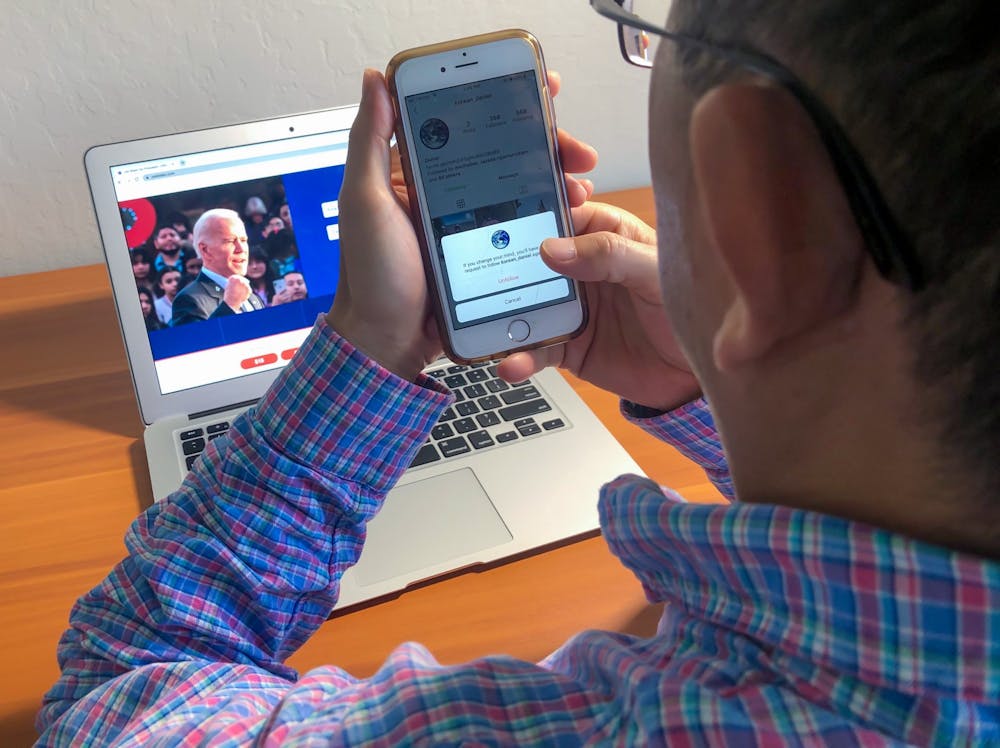
With the general election fast approaching, an already polarized America is experiencing a new level of discord. Even before the coronavirus pandemic, President Donald Trump was casting doubt on our elections process. Now, both he and our democracy have fallen ill. According to a Pew Research Center poll, 49% of Americans anticipate that it will be difficult to vote in this election. A Monmouth University poll found that only 22% of Americans are very confident this election will be conducted fairly and accurately. For a democracy, these are disturbing numbers.
I can place blame on our President or Boards of Elections across the country, but this is of little use to us. Even the most civically minded Penn student can only volunteer as a poll worker, vote, and hope for the best. But this story doesn’t end on Election Day. However long it takes for the votes to be counted, however disputed the election will be, we will eventually have a president. And we will have millions of Americans that despise the President and his supporters.
If we want to remain a democracy, we will have to rebuild. Among Penn’s student body, I see many students preparing for this election, encouraging their friends to vote, and posting infographics that fact-check claims and explain complex issues. I love that, at Penn, I am surrounded by peers that care about the future of America and speak out for what they believe in.
That said, few seem prepared for what comes next. At a school like Penn, it is often easy to ignore the divisions in America. We know that nearly 63 million Americans voted for Trump in 2016, but how many of Penn’s liberal-leaning students are close friends with a Trump supporter, or even know one? Majorities of both Trump and Biden supporters say that they have “just a few” or no friends who support the other candidate. Some Penn students have taken this one step further, posting on their social media that if a friend supports Trump, they should unfollow them immediately.
When I asked one of my best friends to consider talking to more conservatives, she said that she didn’t want to talk to racists. That was not what I said, though I understand where she’s coming from. While there are conservatives that are racist and/or sexist, we cannot equate conservatism with racism. If we automatically label our interlocutors as racist or heartless, then we are intolerant.
Knee-jerk reactions like this have unintended consequences. Trump campaigns on victimhood, and when Hillary Clinton referred to Trump’s supporters as a “basket of deplorables,” she played right into his hands. Some argue that this comment hurt Clinton even more than the Comey investigation.
I understand that talking to those you disagree with can be tiring and, at times, uncomfortable. Nonetheless, if you never defend your beliefs against those who oppose them, then your arguments will be intellectually lazy. It can be comforting to be a part of a group with whom you agree, politically or otherwise. It can make you feel like a bit of a hero. But heroes aren’t just good, responsible people — they venture into the unknown and take risks.
I’m not saying that students at Penn ought to engage in vigorous, time-consuming debate. Lengthy arguments can devolve into shouting matches, and that doesn’t earn respect for either side of the debate. We shouldn’t even enter conversations with the goal of changing our interlocutors’ minds. When we enter with this intention, we tend to pity or shame our interlocutor, again viewing their opinion as inherently wrong.
What we can do is listen. American politics were less polarizing in previous years not because we were united under one ideology, but because there was a baseline respect for the opposite party. We operated under an assumption that both parties wanted the best for our country, though their attempts to achieve that “best” were often misguided, or even harmful.
If we don’t at least try to have conversations with those that we disagree with, we write off millions of Americans as incapable of discussion. In a time as fragile and unprecedented as now, we need unity more than ever. We cannot have unity without understanding. Even Clinton, in her infamous “deplorables” remark, said that Trump’s supporters are “people we have to understand and empathize with as well.”
Though Penn leans liberal, I’m sure that there are Republican Quakers waiting to have a conversation, feeling marginalized by their peers. And back home, your “crazy” relatives may have some valid points to make, even if you don’t agree with them. Let’s try to begin these conversations: They can leave us with a richer understanding of the world around us.
CAROLINE MAGDOLEN is a College and Engineering first-year student studying Systems Engineering & Environmental Science. Her email address is magdolen@sas.upenn.edu
The Daily Pennsylvanian is an independent, student-run newspaper. Please consider making a donation to support the coverage that shapes the University. Your generosity ensures a future of strong journalism at Penn.
Donate







